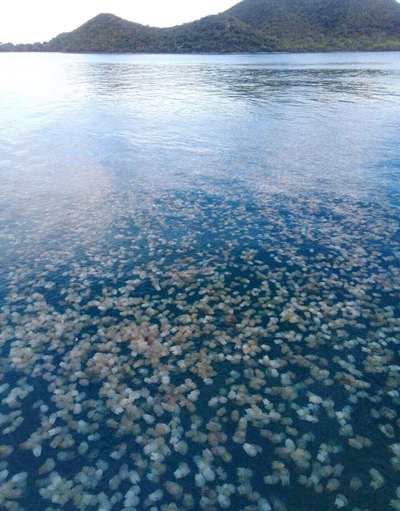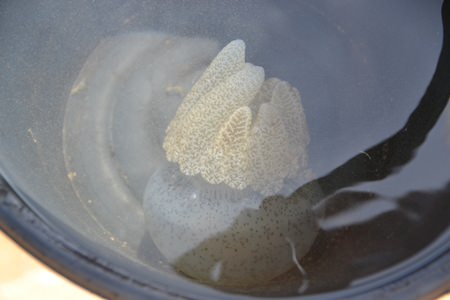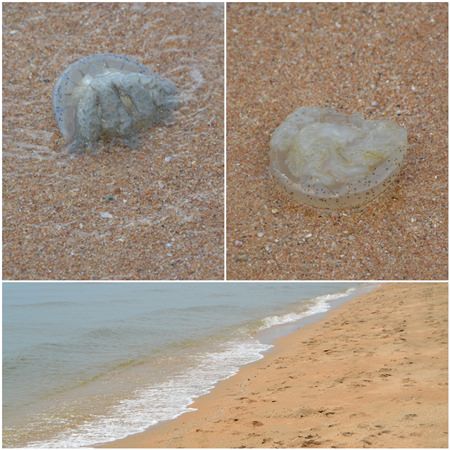
A huge bloom of jellyfish first
invaded Sattahip Naval Base, then made its way up to Jomtien and Pattaya
beaches.
Urasin Khantaraphan and Patcharapol Panrak
More than a million jellyfish have invaded eastern waters, making a day at the
beach a potentially painful experience.
The annual bloom of juvenile jellies is dangerous, but not usually deadly. They
are enough, however, to push beachgoers out of the surf.
The bloom, which usually comes in late September to early October, was first
spotted at the Sattahip Naval Base Sept. 23.
Officers and conscripts lined the Laem Tien and Juksamet piers, snapping
pictures on mobile phones of the thousands of young jellies, whose translucent
bodies reflected pastel colors from the sun.
Pier commander Rear Adm. Chatchai Phothipak said the jellyfish didn’t muck up
the engines or works of the ships, so they simply provided a natural
distraction.
The area is not open to the public, but navy officials planned to share photos
online for public enjoyment.
Sunbathers in Pattaya won’t need them. They received a first-hand dose of the
colorful creatures Sept. 24.
The swarm of jellyfish had shrunk once it arrived off Jomtien and Pattaya
beaches, but they were still plenty potent. Many avoided the water and scuba
divers certainly lamented the spawn, but a few brave - or foolish - souls
scooped some up in buckets.
Stings can be painful or, for people with allergies, potentially deadly. The
usual treatment for normal stings is to treat the welt with water as hot as the
victim can tolerate and then splash with vinegar.
British tourist Bruce Fleestone, 60, said he didn’t want to swim because he saw
lots of jellyfish in the water and he was afraid of getting stung. He said he
warned other tourists to do the same.
Beach vendor Jintana Kantawhichit, 56, said the jellyfish often surface when it
rains, but disappear when the sun is blazing. The majority of them can be found
20-30 meters off shore.



